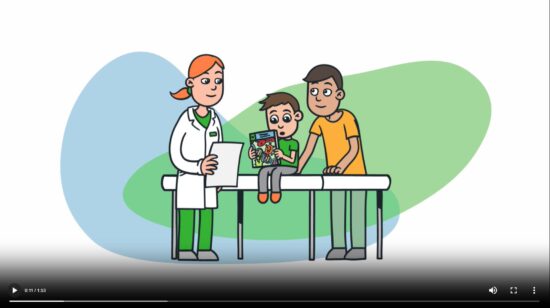BBMRI.at partner Biobank Graz puts new focus on pediatrics
Pediatric biobanking is of utmost importance for the research of rare diseases, congenital disorders and tumors that occur primarily in children. In order for tissue, blood and other human specimens to be used for scientific purposes, an informed consent (IC) has to be given by the legal guardian and – depending on its age – the child.
The new IC forms of Biobank Graz for pediatric biobanking are now available. They distinguishing between children aged 0-7, 8-13 and 14-17 years. Adolescents aged 14 years or older have to give an informed consent for the use of their specimens along with their legal guardian, while from 8 to 13 years, an informed assent of the child is required.
To ensure an educated decision, the use of their tissue or body fluids is disclosed to the legal guardian and the child in an age-appropriate way before IC can be given. The specimens will only be used for scientific purposes and only if approval by the ethics committee of the respective research institution (e.g. a Medical University) is given. At all times, patient-specific data related to the specimens is pseudonymized or anonymized according to the data protection laws of Austria and the European Union.
ICs can be withdrawn anytime without specification of reasons. The IC of minors automatically expires when they turn 18 years old and must be renewed with an adult IC to enable further use of the specimens.
To support the educated information about biobanking for pediatrics, an animated video for children was produced, which explains biobanking to adults and children in a child-friendly way. The video is now available on the website of Biobank Graz in German and English language.
Watch this video to learn about and the importance of biobanks for medical research and the development of new therapies in pediatrics.


